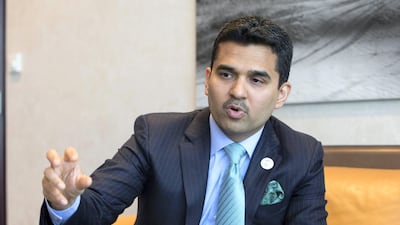Millions of Indian nationals living outside India may get the right to vote in the country’s general elections as the highest court is due to decide on a petition filed by a prominent Dubai-based businessman.
A public interest litigation filed by Dr Shamsheer Vayalil, founder and chairman of VPS Healthcare, has been posted for a detailed hearing in April by the Supreme Court of India on Thursday.
“This is a genuine demand,” said Dr Vayalil, who had petitioned the court in 2014 to allow NRIs voting rights.
“I hope that the court will rule on this. Once implemented, this would strengthen millions of NRIs to exercise their voting rights from their workplaces across the border.
“It is the right of every individual to participate in the electoral process.”
Indians who live overseas can vote in state and federal elections as long as they travel to their home constituencies to cast their ballot.
This is expensive and impractical for the majority of NRIs who would need to take time off from work and fly to India for just a few days to cast their vote.
A definitive decision has been long awaited.
Following Dr Vayalil’s petition in 2014, the court directed India’s Election Commission to submit a report on NRI voting and asked the federal government to clarify its stand.
The attorney general then informed the Supreme Court in 2017 that a legislative amendment would be made to the Representative of People Act, which lays down the provisions for the conduct of elections and provides the framework for the electoral process in the country.
India’s lower house of parliament passed a bill in 2018 to allow NRIs to vote by proxy or authorise a relative or friend to vote on their behalf.
However this decision lapsed and was not passed by the upper house because of the dissolution of the lower house ahead of the 2019 general elections.
“We told the court that the matter had been pending for six years and there should be some urgency since the court itself had earlier asked the government and the Election Commission to take a decision on NRI voting,” said Haris Beeran, an advocate who appeared for Dr Vayalil before the court in New Delhi.
“We are hoping that with this, there will be finality on a long-pending demand and NRIs will know either way whether they will be able to vote or not.”
Before the last elections in April-May in 2019, excitement built up in the Indian community with WhatsApp messages and Facebook posts that inaccurately suggested voting rights to cast their ballot overseas had been granted.
The Election Commission of India then required to step in and issue a statement in February last year clarifying that NRIs could not cast their vote overseas but must return to India to vote in the general elections in summer.
Indians who live overseas have repeatedly made representations to the federal government to allow them voting rights.
Aside from the matter coming up before the court, an amendment must be made to the Representation of the People Act in India’s parliament for the voting rights to be enforced.
“We are hoping that within two months the government will take it up because it is essentially a legislative exercise that needs to be completed,” Mr Beeran said.
There are more than 13.6 million Indian nationals living out of India, of which more than 7 million live in the Middle East, according to India's External Affairs Ministry in parliament.
The highest number of Indians abroad are in the UAE at 3.4 million..


